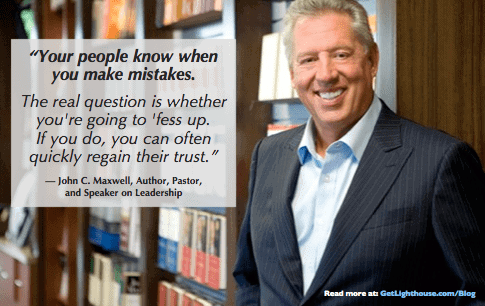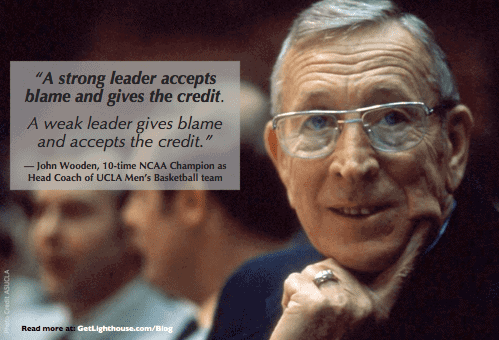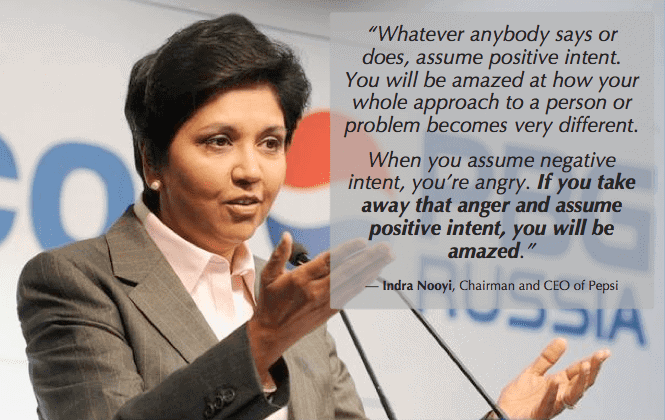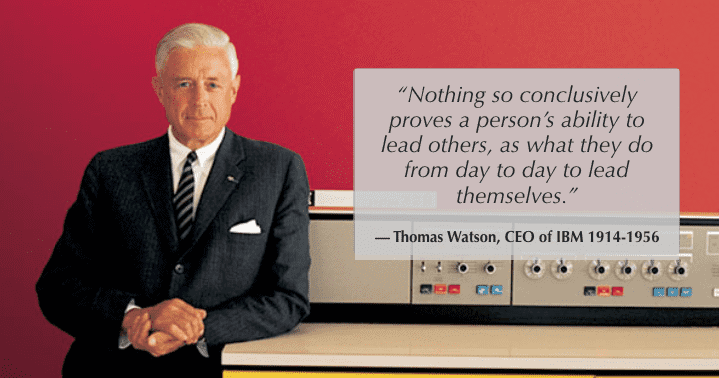There are many skills and concepts to master to be a good manager. Management is a career change, not just a promotion, after all. It takes years to master many of them.
However, there is one skill, one approach, that is the best place to start: Self-awareness.
To be a Good Manager, Always Start with Yourself
When you start managing people, you and your team are going to make mistakes.
And, even later, no matter how good you become, there will always be mistakes made.
Taking risks, trying new approaches, and being creative are essential to innovating and bringing out the best in your team.
When those mistakes happen, your self-awareness becomes key to be a good manager.
Everyone makes mistakes.
As a manager, you always significantly contribute to the success and failure of your team. Accept it and embrace it.
This is important especially when there are problems. When something goes wrong, rather than looking to blame others and point fingers, start with yourself:
- Did you provide sufficient guidance to your team member that made a mistake?
- Were you keeping an eye on potential issues that would be "below the water line"?
- Are you fixing problems when they're small, or did you let it snowball before dealing with it?
Most of the time, your team will make the visible part of a mistake. However, when you look deeper to the root cause, something you did, or failed to do, will be a major contributor. Your team likely knows it, so keep their trust by owning up to and addressing your part.
Share the responsibility.
When you embrace your role in problems, you help make it safe for everyone to admit their contribution to the problem. They no longer have to fear reprisal for what they've done.
This shifts the entire mindset of your team.
You know you had good intentions with the choices you made that led to the issue. When you demonstrate humility in your contribution to the problem, your leadership by example allows everyone else to feel the same way.
The vast majority of the time, your team members have nothing but positive intent for the work they're doing. As Indra Nooyi says in the quote above, bring that mindset to these discussions.
Don't let one bad seed, one time cause you to assume everyone is evil or out to undermine you. That mindset will only make your workplace toxic.
Embrace continuous improvement.
You're going to make mistakes as a manager. It comes with the territory. However, if you get better every day, your team will, too.
When you take an approach of always learning how you contributed to a problem, your team will do the same. It can quickly lead to successful discussions like "blameless retrospectives" where the only goal are better outcomes going forward. [Ed. Note: Learn how leaders at Etsy, Google, and Salesforce do them from the links on their company names.]
This is how great teams are made. And it starts with you.
How you approach mistakes and problems sets the tone for your team. If you call people out, belittle them, avoid taking responsibility yourself, or make excuses, so will your team.
If instead you accept some responsibility, assume positive intent, and focus on the future, your team will, too.
Start with a little self-awareness, and embrace working to get better every day. With that mindset, you'll be able to tackle any challenge you face as a manager.
Further Reading:
Here's a few links to help you get started thinking about ways you could be contributing to problems in hidden ways:
- Are you working under the assumption that you should be equally hands off (or on) with your team? Then you need to learn about Andy Grove's concept, "Task relevant maturity."
- Do you wait for problems to come to you? Learn why your open door policy fails, and what to do instead here.
- Do you feel like you spend all your time fighting fires? Here's how you can get out of reactive management mode.








